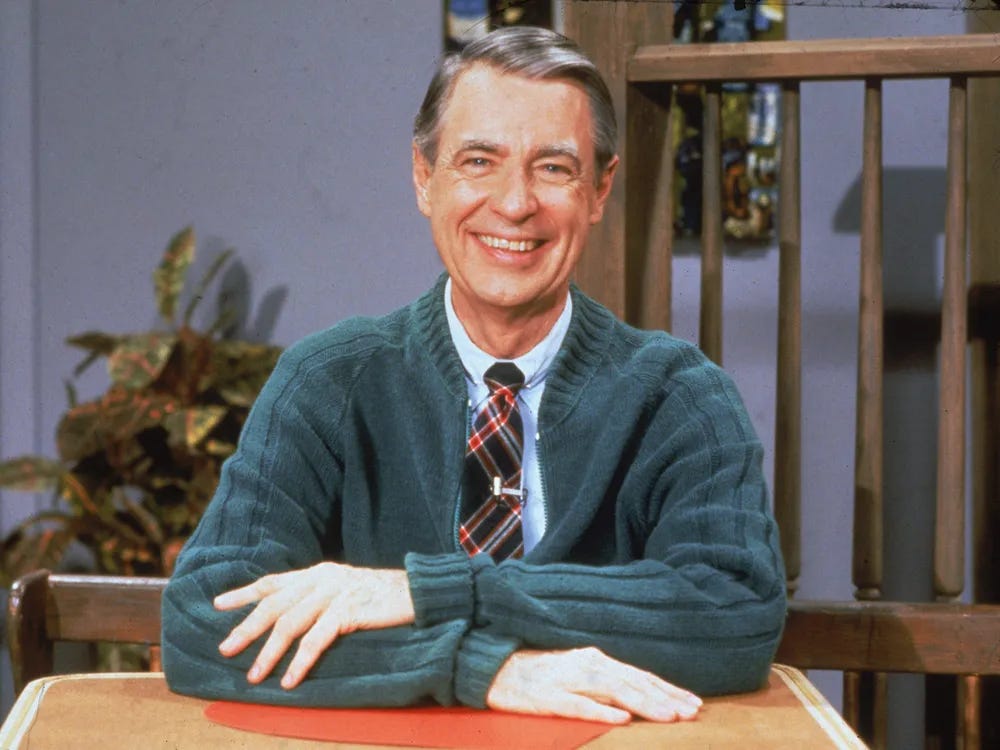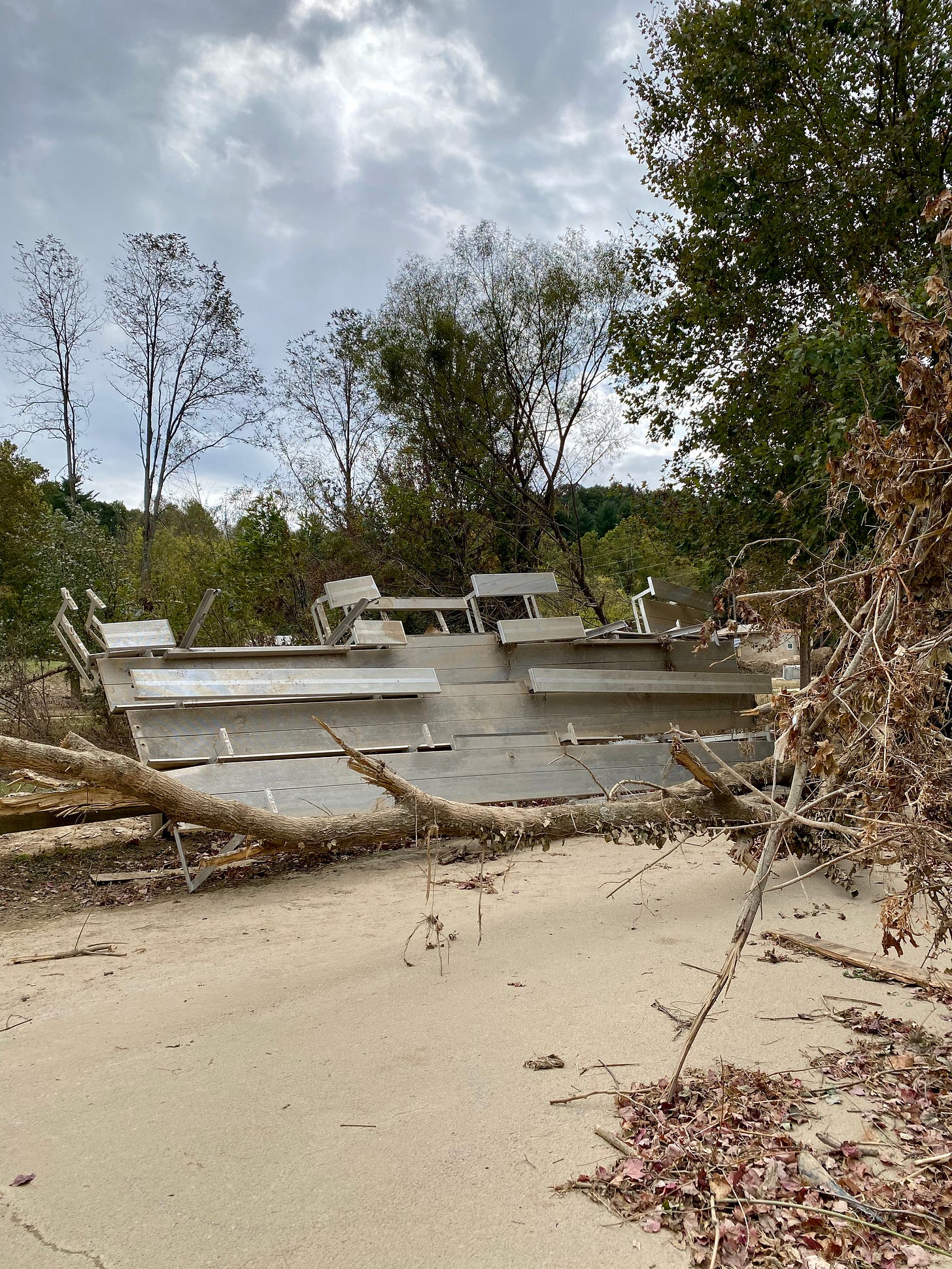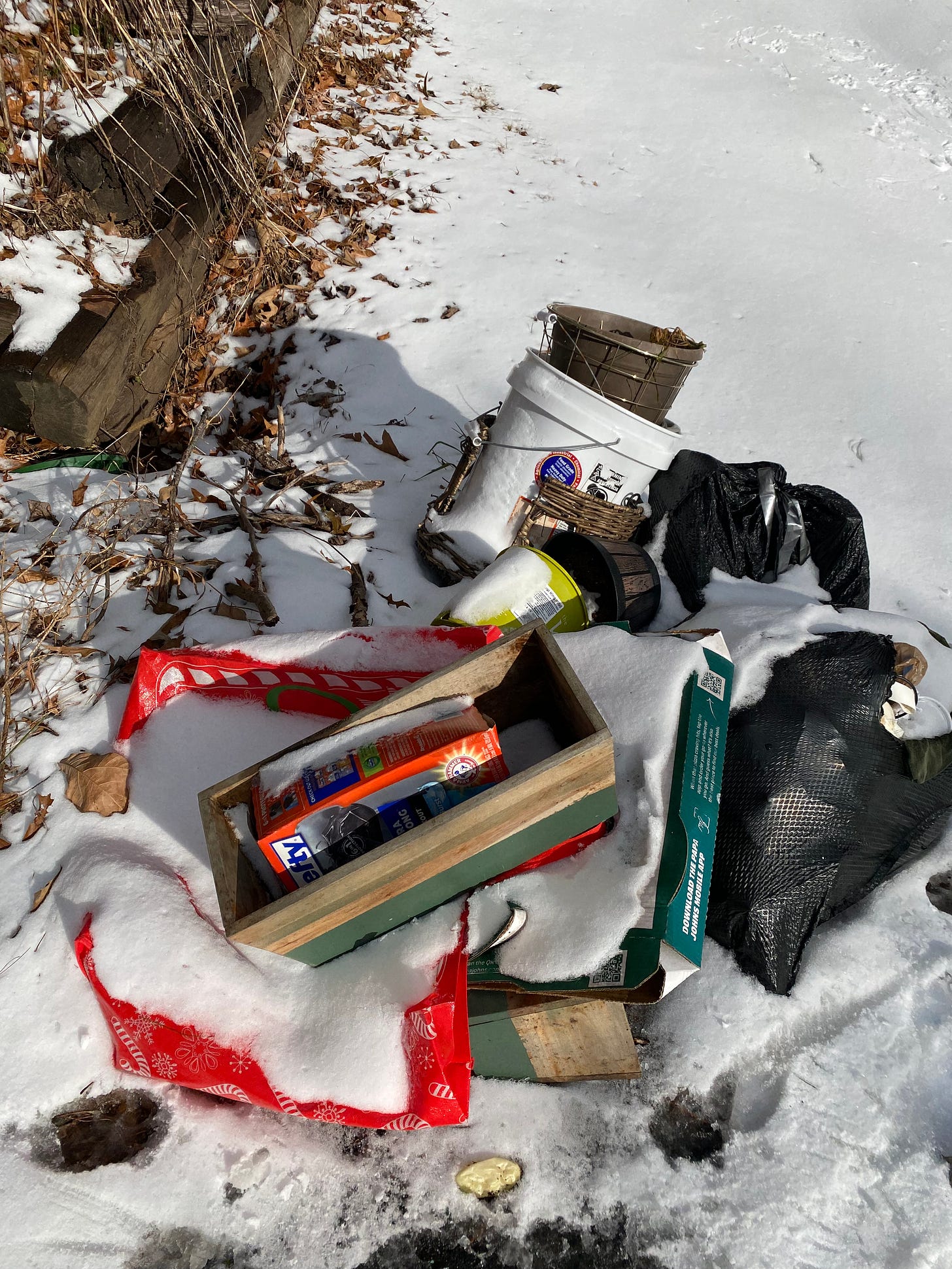How to be a Helper
In scary times, here's how to be the helper that Mr. Rogers was looking for.
Mr. Rogers said it best: “When I was a boy and I would see scary things in the news, my mother would say to me, ‘Look for the helpers. You will always find people who are helping.”’
The news of the fires in southern California really brought out the environmental trauma from living through Hurricane Helene that I had been largely ignoring. My underlying anxiety left me staring bleary-eyed into the blue light of my phone until the wee hours of the morning— as if taking in more news and more tragedy and more “hot takes” could help.
No surprise here: it never helps.
Here’s how to genuinely help during and after an environmental disaster:
Give Unconditionally & Ask What Folks Need
One of the most eye-opening things that came out of the disaster was that I realized how conditional “help” could be. Obviously, help from the government is very conditional. This is one of the reasons why mutual aid and nonprofit help is essential. But even then, people often donated what they wanted to donate instead of what folks actually needed. At one point, the entire floor of one room in our small home was filled with water bottles and yes, we needed clean water, but I almost cried when I was given some dry shampoo. That was truly my need at the time.
Ask what people need! It may surprise you. During the first week of the hurricane, after we could get out of town, I drove to my parent’s house to get supplies. Before I left I asked my neighbors what they needed and they requested liquid Benadryl, in case they had an allergic reaction. I would have never thought of that need!
If in doubt, even just $20 bucks to someone’s Venmo can be helpful. Being able to choose which taco I wanted (taco trucks were one of the only places open in the first few days) would have been such a treat.
Tell people you love them
We should be telling people that we love them and appreciate them all the time, not just in an environmental disaster, but I will say this was one of the best things about a horrible situation. I had people that I hadn’t talked to in years reach out to ask about my well-being. It made me feel really loved and thought about during a hard time.
Something a few people did was also tell me that they didn’t expect a response out of me and that was helpful too. When I did eventually get cell phone service back, it was a bit overwhelming to have 40 or so text messages come in all at once.
Reach out after the news cycle
Speaking of reaching out, one of my old bosses checked on me directly after the storm, but also several weeks after. It was still really hard during that time. Living with no water is a huge burden and I really appreciated her thoughtfulness and follow up. Disasters don’t end when the news does. (Monique if you are reading this: you’re the best boss I’ve ever had! I appreciate you!)
Don’t make it about you & your opinion
More than once I had people tell me something like: “I tried to donate my old clothes, but they didn’t want them!” Or, “Well, it floods a lot in Asheville and they didn’t have flood insurance!” Neither of these statements are helpful and it leaves the folks affected taking on the emotional burden of trying to dispel falsehoods and outsider opinions. It’s exhausting and one more stress put on that person. Victims don’t need to be managing outsider’s feelings as well as their own.
Look outside of this disaster
Climate change is here. Climate change worsens heatwaves, droughts, wildfires and floods. It’s already effecting all of us and I’m scared for what the world will look like for kids today. But we do have some control. We can vote, question our systems, build our communities and opt-out of our profit-over-people systems by buying less. If you needed a reason, now is the time to cancel your Amazon Prime. You don’t need it. And if you are feeling extra f*ck the system, like I am, consider doing a No Spend Year.
If you need some extra motivation, the Buy Now documentary on Netflix is a good watch. Stephanie of Sustainable Minimalists recently interviewed the producer here.
Don’t be a what about-er
Ugh. Online I’ve seen a few people during the So Cal fires say “Well, what about Appalachia?” And I have to say as someone who lives here, yes, Appalachia still does need help, but we don’t need to compare or weigh our traumas against each other. Because here’s the thing: human compassion is a free, unlimited resource and climate change is coming for all of us.
Know that you can help from afar
After the hurricane we had a weird influx of people to the area that stressed our resources. These folks sometimes arrived on the guise of helping, but were mostly here to take photos. It was so prevalent that I started hearing the phrase “grief peepers” instead of the usual “leaf peepers” that we get during the autumn.
Please don’t be a tourist during this time. These areas will need tourism eventually. (Appalachia can use tourism now!) But the midst of an environmental disaster is not the time. If you want to physically volunteer, unless you are a first responder, wait! The rebuilding phase is a long one and one when folk are much-needed. Your time will come.
Protect your heart, mind and health too
Even if you’ve been lucky enough to have never lived through an environmental disaster, taking in the 24 hour news cycle can be stressful. Please protect your own heart, mind and health too. Know that we need helpers who are in a good mental space. Seeing tragedy online and in-person is hard. It takes a toll. You don’t have to be glued to your phone to be informed.
So-Cal, I’m thinking of you
If you’re going through the fire right now (figuratively and literally), I’m thinking of you. Don’t feel guilty if you can’t help at this moment. Or maybe, you have a burst of adrenaline right now and then come-down hard later. That’s what I did. Know that, your capacity might wain. That’s ok too. Your feelings, all of them, are valid.
I’m thinking of you, making changes and hoping for a better world.
Melanie
If you want to learn more about how to prep for disaster, I wrote about what I wish I had during Hurricane Helene here. I also wrote about how I’m prepping for the next 4 years here.
This week, I donated to the Mutual Aid LA. If you’re looking for some other places to donate: the Los Angeles Regional Food Bank is accepting donations. And here’s a list of verified GoFundMe fundraisers where you can provide direct support to people affected by the wildfires.






Thank you so much for sharing your thoughts. It hits differently from someone who has gone through a similar (but not, also) situation. My community had massive flooding in 2013, and there are still projects under way to restore and protect from future events.